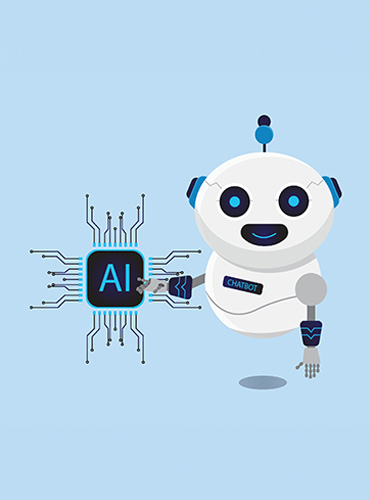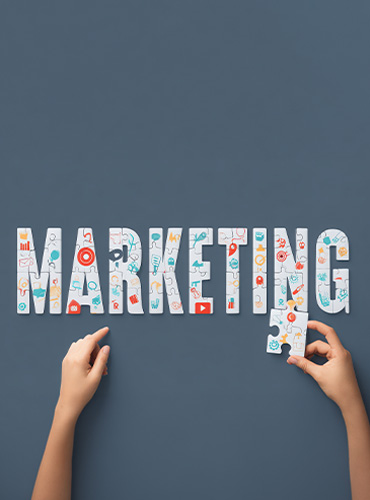
Artificial Intelligence (AI) has transformed numerous industries, and digital marketing is no exception. From personalizing customer experiences to optimizing campaigns for maximum ROI, AI is revolutionizing the way brands interact with their audiences. By leveraging machine learning, natural language processing, and data analytics, AI empowers marketers to predict trends, understand consumer behavior, and deliver tailored experiences at scale.
We will also explore how incorporating AI into marketing strategies enhances a brand’s effectiveness by enabling businesses to engage with their audience on a more personalized and meaningful level. AI-driven tools empower marketers to optimize campaigns, analyze large datasets, and make data-informed decisions that boost overall performance.
With AI, brands can streamline repetitive tasks, predict trends, and deliver highly targeted messaging, resulting in improved customer experiences and stronger connections with audiences. This integration ultimately helps brands remain competitive in an ever-evolving digital landscape while fostering deeper relationships with their customers.
In this article, we will explore the profound impact of AI on digital marketing, focusing on its benefits, applications, and potential challenges.
What Is Artificial Intelligence in Digital Marketing?
Artificial Intelligence in digital marketing refers to the use of AI-driven technologies and tools to enhance marketing strategies and operations. These tools are designed to mimic human intelligence, enabling tasks such as data analysis, decision-making, and content creation to be performed more efficiently and accurately. AI-powered solutions have become indispensable in an era where vast amounts of data need to be processed to target audiences effectively.
Benefits of AI in Digital Marketing
1. Enhanced Personalization
AI allows marketers to create highly personalized customer experiences. By analyzing user data, AI can predict customer preferences, recommend products, and deliver content tailored to individual needs.
For instance, platforms like Netflix and Amazon utilize AI to offer personalized recommendations based on browsing history, past purchases, and user behavior. This level of personalization not only improves customer satisfaction but also increases conversion rates.
2. Improved Customer Engagement
AI-powered chatbots and virtual assistants enable brands to engage with their audience in real-time. These tools offer instant responses to queries, provide support 24/7, and enhance the overall customer experience.
For example, businesses like Sephora use chatbots to provide personalized beauty tips and product recommendations, driving engagement and boosting sales.
3. Data-Driven Decision Making
AI excels at analyzing vast amounts of data quickly and accurately. Marketers can use AI to uncover insights, identify trends, and make informed decisions based on real-time analytics. This enables campaigns to be optimized for better performance and ROI.
Google Analytics 4, for example, incorporates AI to provide predictive insights, helping marketers anticipate future customer actions and improve targeting strategies.
4. Cost and Time Efficiency
AI automates repetitive tasks such as email marketing, content scheduling, and data entry. This reduces the workload for marketing teams, allowing them to focus on strategy and creativity while cutting operational costs.
Tools like Mailchimp use AI to automate email campaigns, segment audiences, and predict the best times to send messages, enhancing overall efficiency.
Applications of AI in Digital Marketing

1. Content Creation and Optimization
AI tools like Jasper, Writesonic, and ChatGPT assist marketers in generating high-quality content quickly. These tools can create blog posts, social media captions, and ad copies, saving time and effort. Additionally, AI-driven SEO tools like SurferSEO and SEMrush analyze keywords, optimize content structure, and predict how content will rank on search engines.
2. Programmatic Advertising
Programmatic advertising uses AI to automate the buying and placement of ads. It ensures that ads are delivered to the right audience at the right time, improving ad performance and reducing wasteful spending. Platforms like Google Ads and Facebook Ads use AI algorithms to optimize ad targeting, bidding, and placements, ensuring maximum reach and impact.
3. Predictive Analytics
AI-driven predictive analytics tools analyze historical data to forecast future outcomes. This helps marketers anticipate customer behavior, optimize pricing strategies, and develop more effective campaigns. For example, Spotify uses AI to predict user preferences and curate personalized playlists, keeping users engaged on the platform.
4. Voice Search Optimization
With the rise of voice-activated devices like Amazon Alexa and Google Assistant, optimizing content for voice search has become essential. AI helps marketers identify conversational keywords and create voice-friendly content that aligns with user intent.
Challenges of AI in Digital Marketing
Despite its numerous benefits, integrating AI into digital marketing strategies is not without challenges.
Data Privacy and Security
AI relies heavily on user data to deliver personalized experiences. However, this raises concerns about data privacy and security. Marketers must ensure compliance with regulations like GDPR and CCPA to build trust and protect customer information.
Over-Reliance on Automation
While AI streamlines operations, over-reliance on automation can lead to a loss of human touch in customer interactions. Striking a balance between automation and human engagement is crucial to maintaining authenticity and trustworthiness.
Implementation Costs
Implementing AI-driven tools and technologies can be costly, especially for small businesses with limited budgets. Ensuring a clear ROI and scalability is essential to justify the investment.
Ethical Concerns
AI systems are only as unbiased as the data they are trained on. If not monitored carefully, AI can perpetuate biases in targeting and decision-making, leading to ethical concerns.
The Future of AI in Digital Marketing
The future of AI in digital marketing is both exciting and transformative. Emerging technologies like augmented reality (AR), virtual reality (VR), and generative AI are set to redefine customer experiences. AI will enable hyper-personalized marketing strategies, allowing brands to connect with customers on a deeper level.
Moreover, advancements in machine learning will enhance predictive analytics, enabling marketers to stay ahead of trends and adapt to changing consumer behaviors. As AI continues to evolve, its integration with digital marketing will become increasingly seamless and impactful.
Conclusion
Artificial Intelligence is no longer a futuristic concept—it’s a fundamental component of modern digital marketing. By harnessing AI’s capabilities, brands can deliver personalized experiences, optimize campaigns, and make data-driven decisions that drive growth and customer satisfaction.
However, as with any technological advancement, it’s essential to approach AI implementation thoughtfully. By addressing challenges such as data privacy and ethical concerns, marketers can ensure that their AI-driven strategies align with their brand values and build trust with their audience.
Incorporating AI into digital marketing strategies is not just about staying competitive—it’s about embracing innovation to create meaningful and lasting connections with customers. As AI continues to shape the marketing landscape, the brands that succeed will be those that leverage its potential responsibly and strategically.




